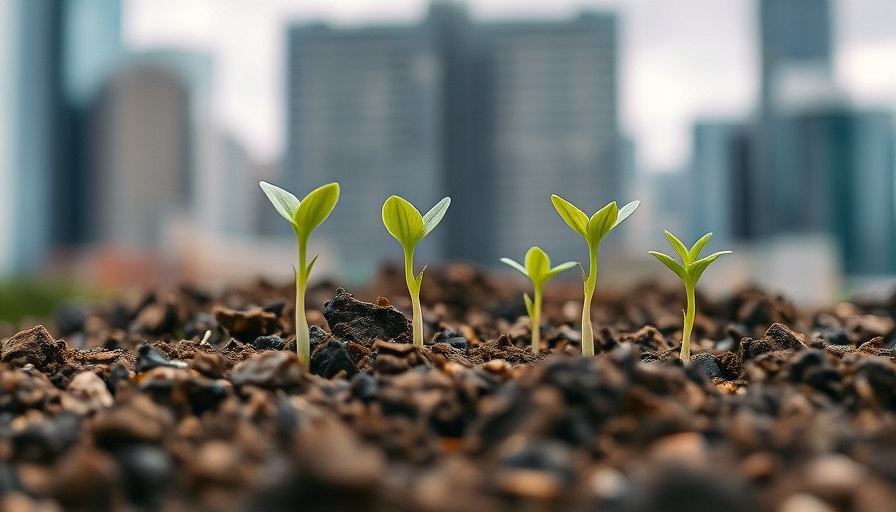
The Alarming Reality of Climate Change in 2025
Our planet is at a critical juncture as climate change continues to escalate at an alarming rate. With atmospheric CO2 levels surpassing 429 parts per million, it has been confirmed that we have already crossed the 1.5°C threshold established by the Paris Agreement. This change has led to disruptive weather patterns, extreme heatwaves, and increasingly destructive storms, posing risks not only to the environment but also to public health and the economy.
Understanding the Science Behind Climate Change
Everyone understands that climate change isn't just a looming concern—it's here and it's affecting us now. The difficulties in conveying the science of climate change hinder bad news from reaching a broader audience. In 2024, unexpected disasters like wildfires, droughts, and hurricanes have shocked many communities. Yet, the urgent need for education around these topics cannot be overstated. If we help each other understand what climate change means and how it impacts our daily lives, we can better prepare to combat its effects.
Climate Impacts: A Closer Look
The impacts associated with climate change extend well beyond rising temperatures. Cities like Washington, D.C., have experienced 15% increases in hourly rainfall, which has resulted in more frequent flash floods. We face critical health risks too, as heatwaves claim thousands of lives and the risk of mosquito-borne diseases rises. From 2025’s unprecedented heatwaves to Australia’s record temperatures, our planet’s ecosystems are feeling the toll as well.
Adapting for a Sustainable Future
Even with alarming data, we are not powerless. Societies that thrive will be those that embrace sustainable practices. By adopting eco-friendly living, urban residents can start taking steps to reduce their carbon footprint through zero-waste initiatives, recycling, composting, and utilizing renewable resources. Adapting to climate change means not just reacting—it’s about taking proactive action for a more sustainable lifestyle.
The Growing Costs of Climate Inaction
The connection between climate change and economic viability is undeniable. As disasters become more frequent and severe, we face mounting insurance challenges, skyrocketing repair costs, and a ripple effect on market stability. The Draft Fifth National Climate Assessment indicates that ongoing climate impacts are unraveling public health systems and economic infrastructure. Understanding these dynamics emphasizes the need for community-led initiatives in waste management, e-waste recycling, and involving diverse demographics in sustainable practices.
Community Engagement: The Key to Adaptation
Empowering communities is essential for combating climate change effectively. Sharing knowledge about composting, e-waste recycling, and sustainable living tips can inspire others to participate. As urban gardens bloom and DIY projects emerge, we can cultivate resilience against climate impacts. Neighborhood workshops focusing on upcycling and waste reduction not only serve as eco-friendly living tips but also build social connections, fostering a culture of care and action.
Moving Forward: The Call for Action
As we transition deeper into 2025, the question of how severe the impacts of climate change will become lies in our hands. Will we act decisively to adapt, or will we let these challenges overcome us? It’s time for urban and suburban homeowners, DIY enthusiasts, and health-conscious individuals to embrace eco-friendly practices. The solutions to combat climate change lie within our communities, waiting for us to take action. Educate yourself through recycling guides, engage with local recycling centers, and promote initiatives that enhance sustainability.
By making small changes in our daily lives, we can contribute to a larger effort that seeks to heal the planet for generations to come. Join the movement today and discover how easy it is to be part of the solution!
 Add Row
Add Row  Add
Add 




 Add Row
Add Row  Add
Add 

Write A Comment